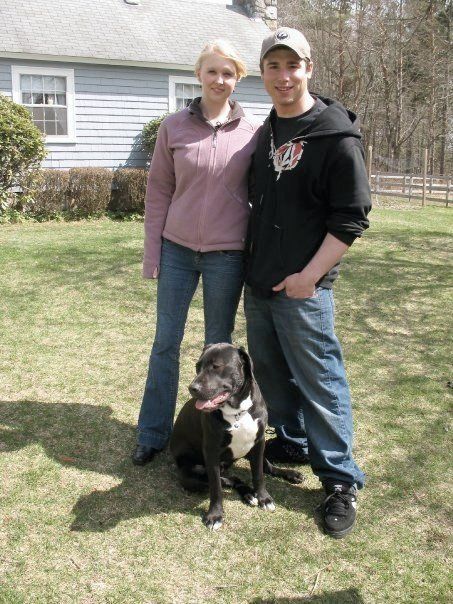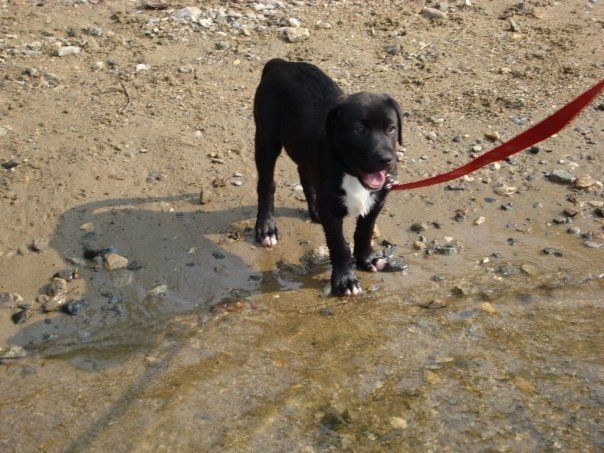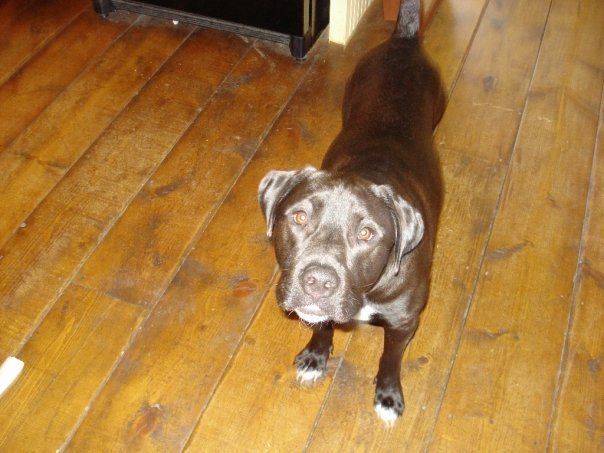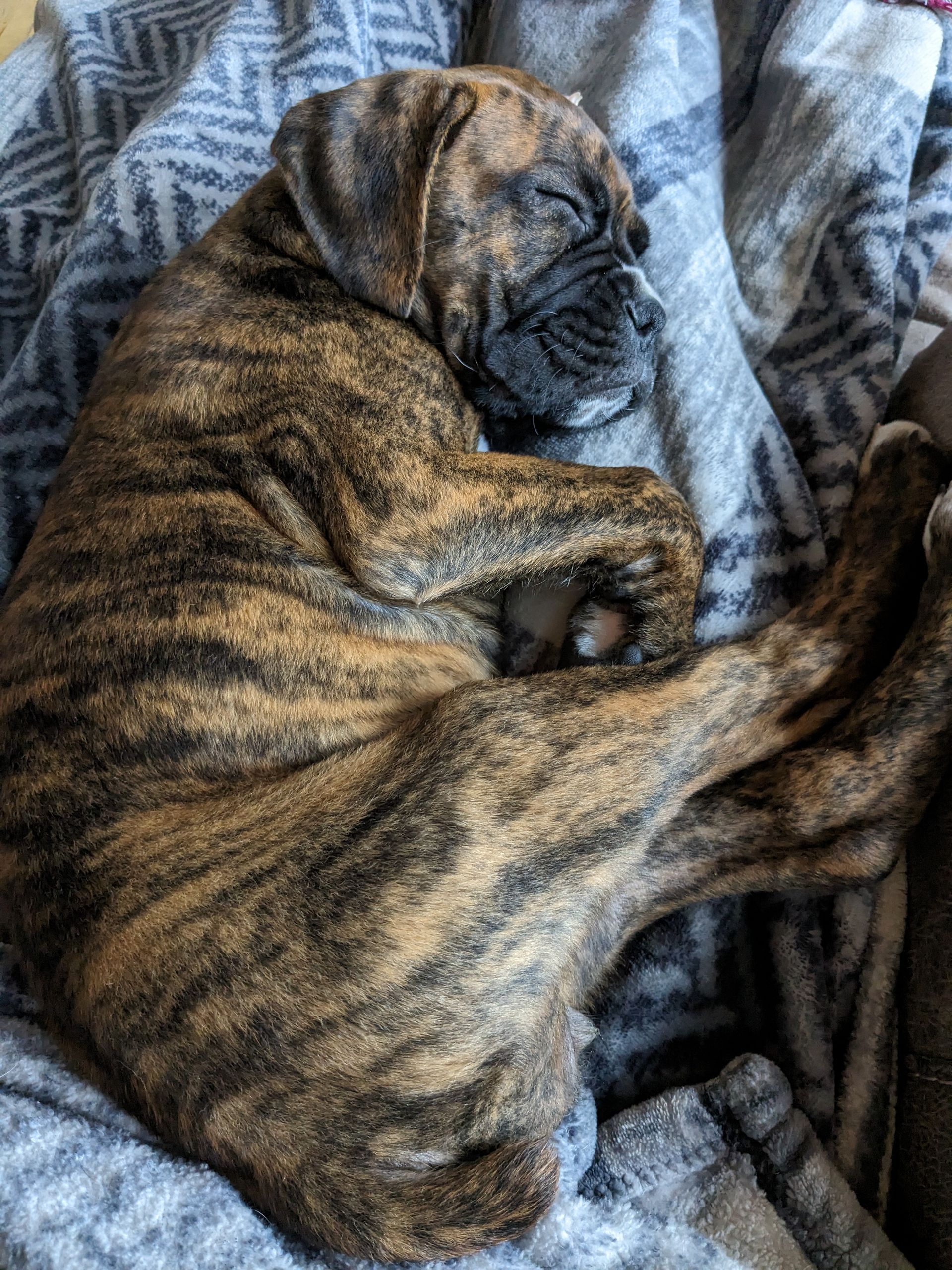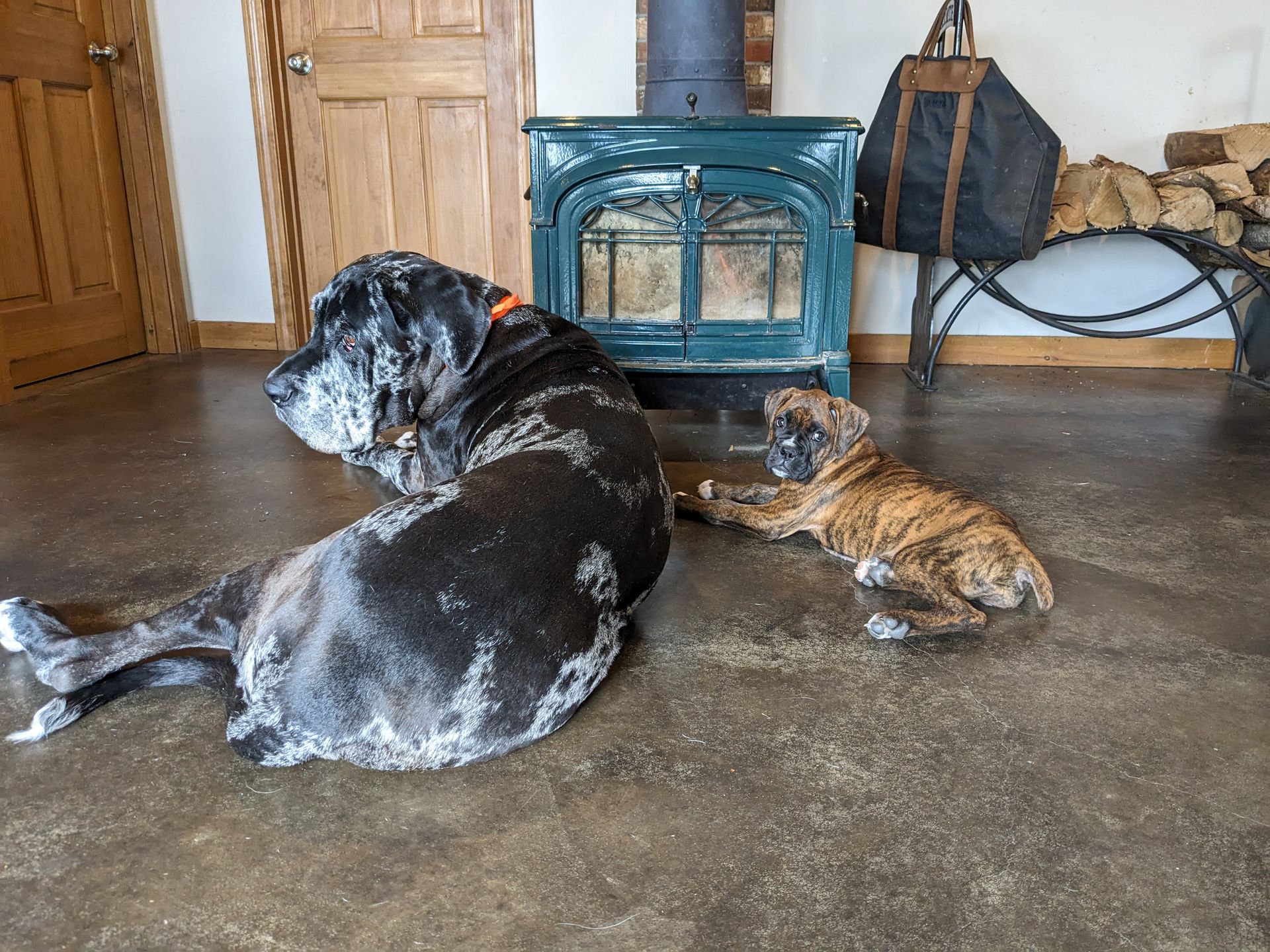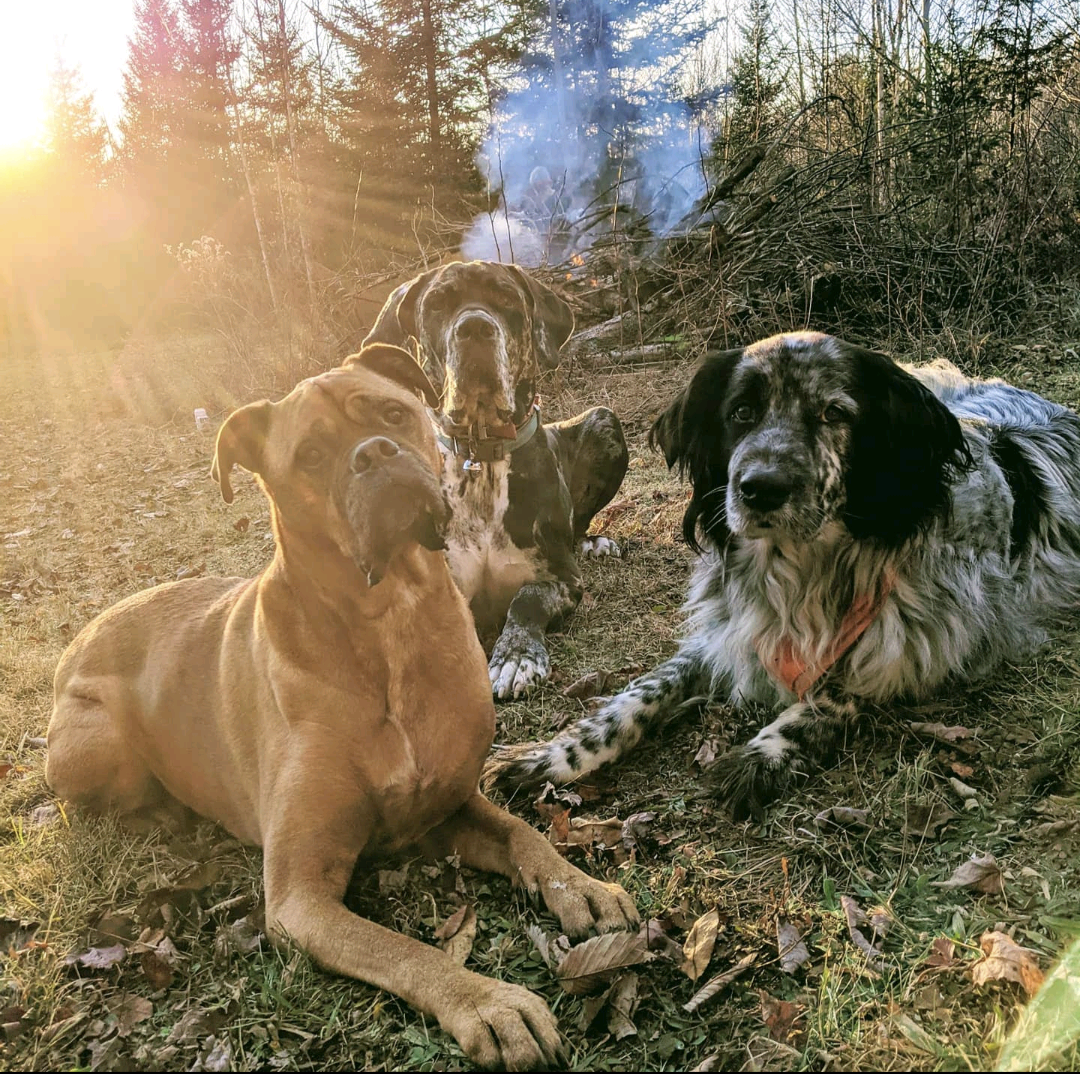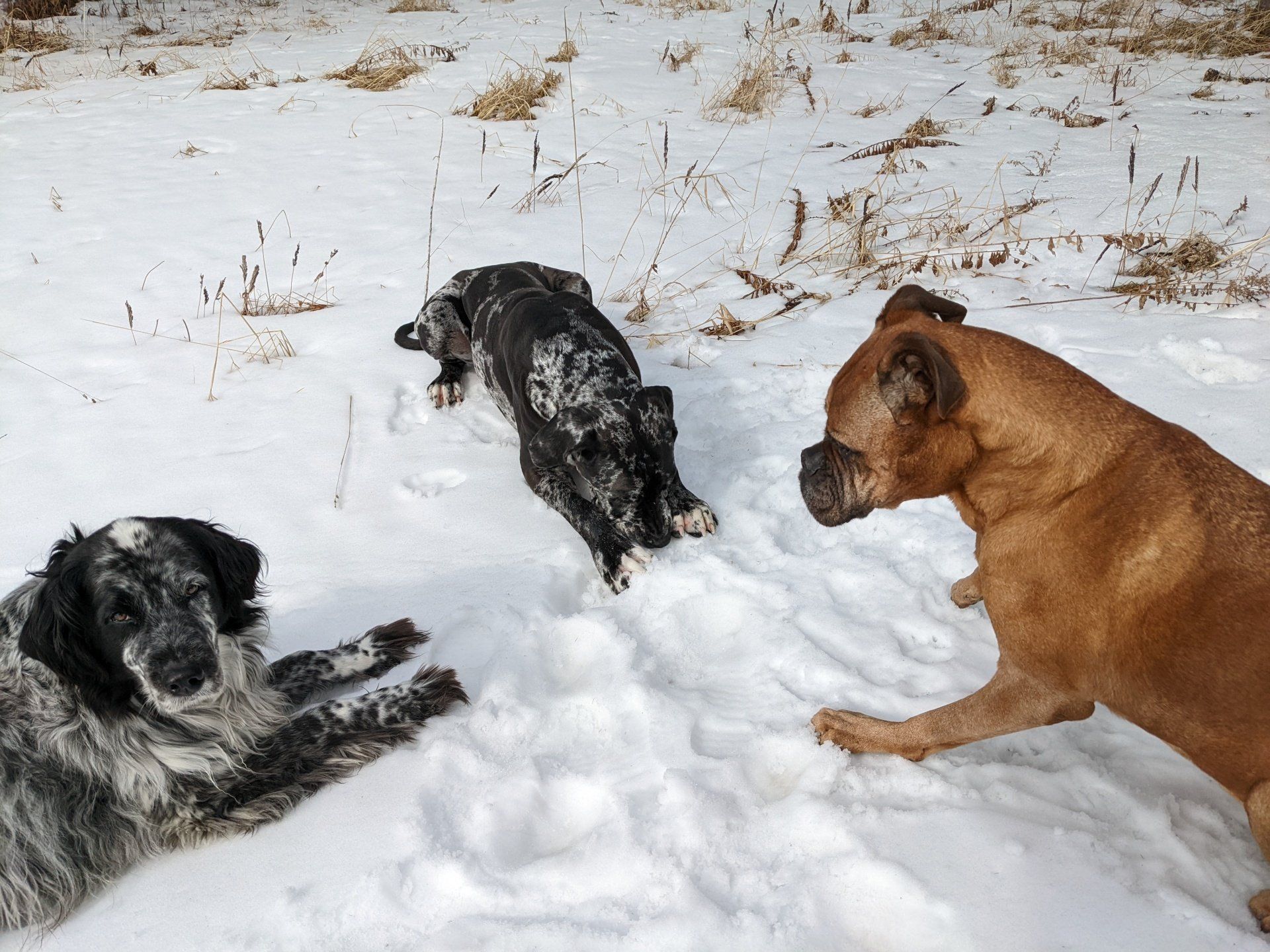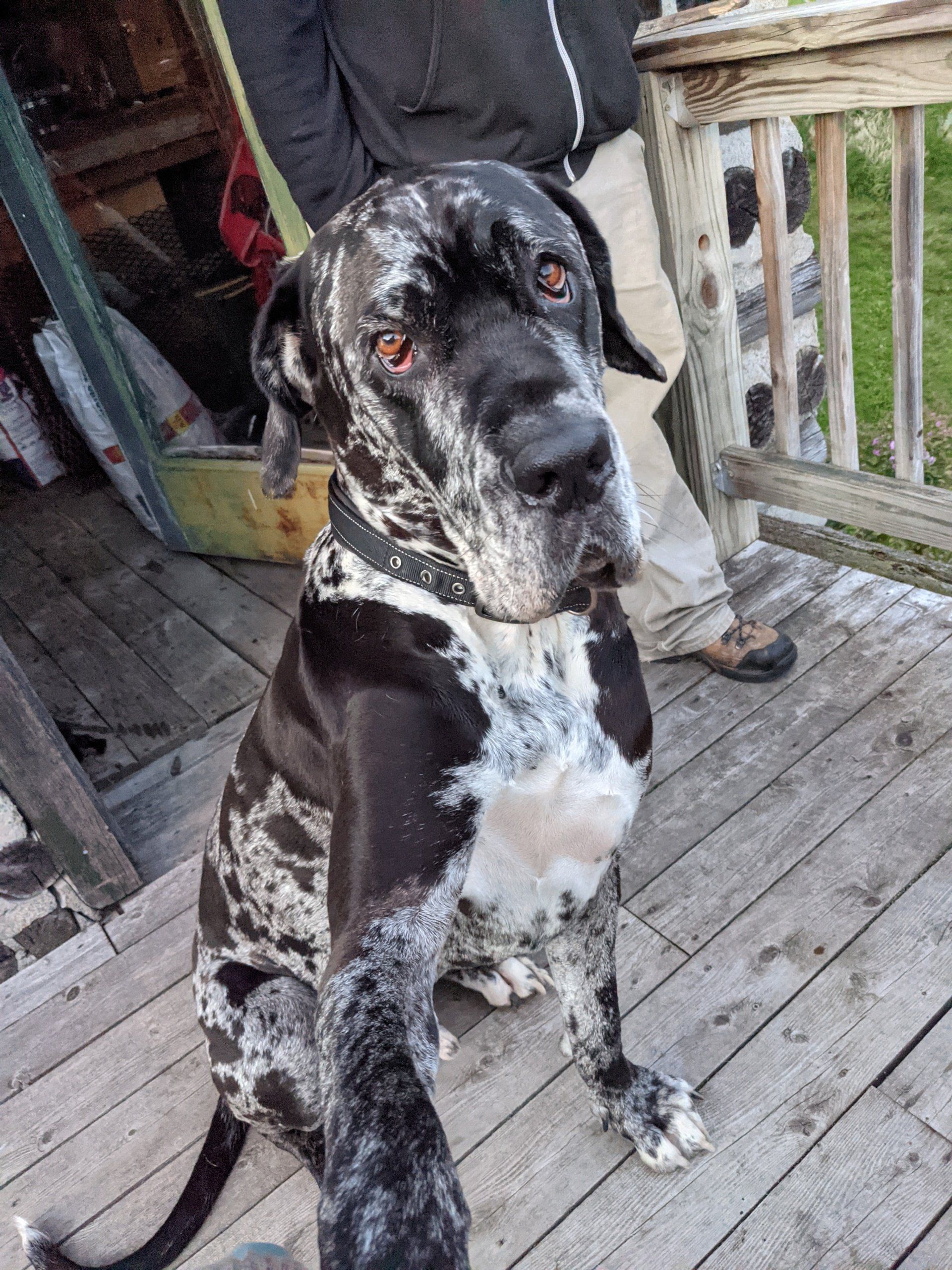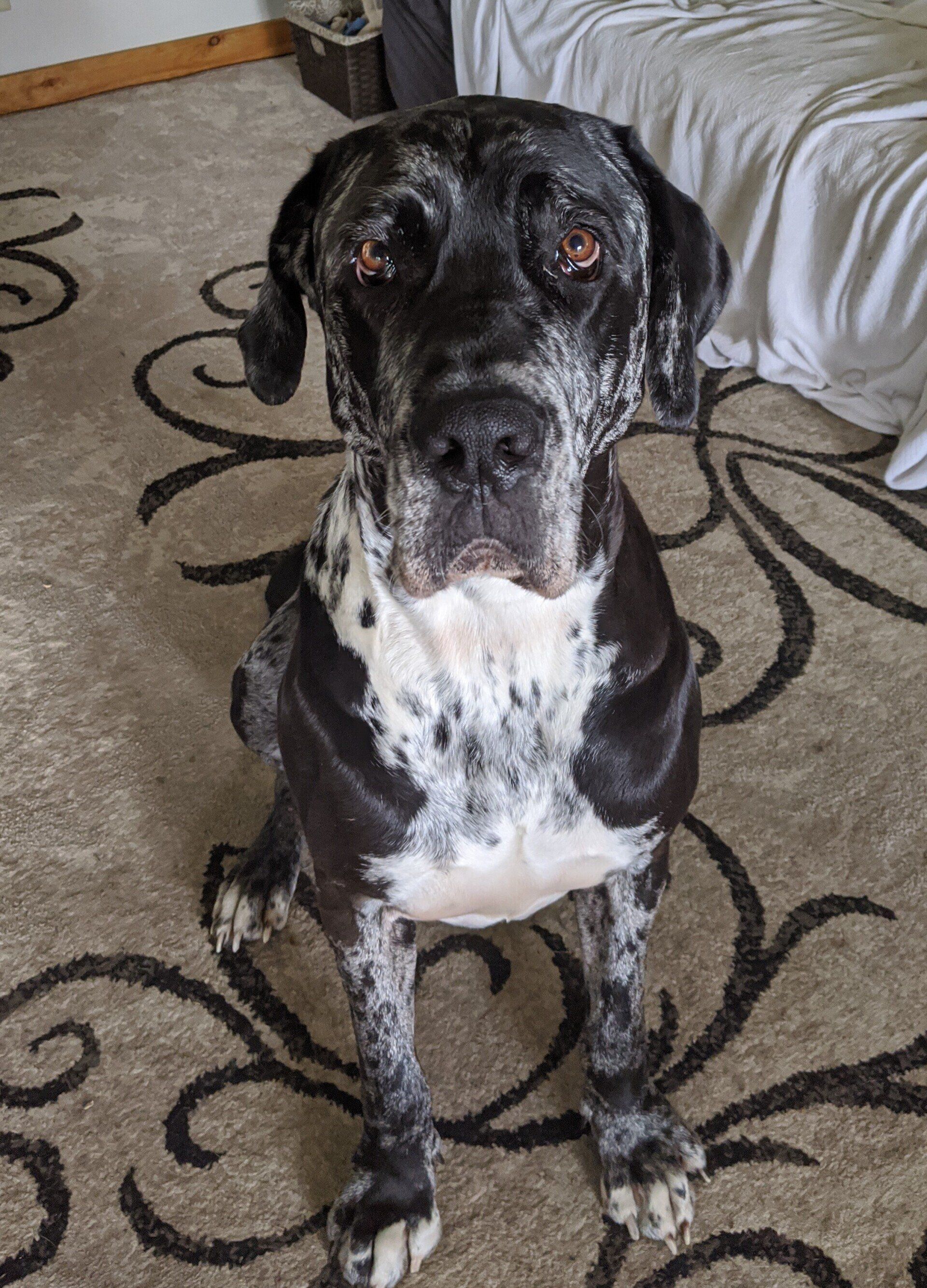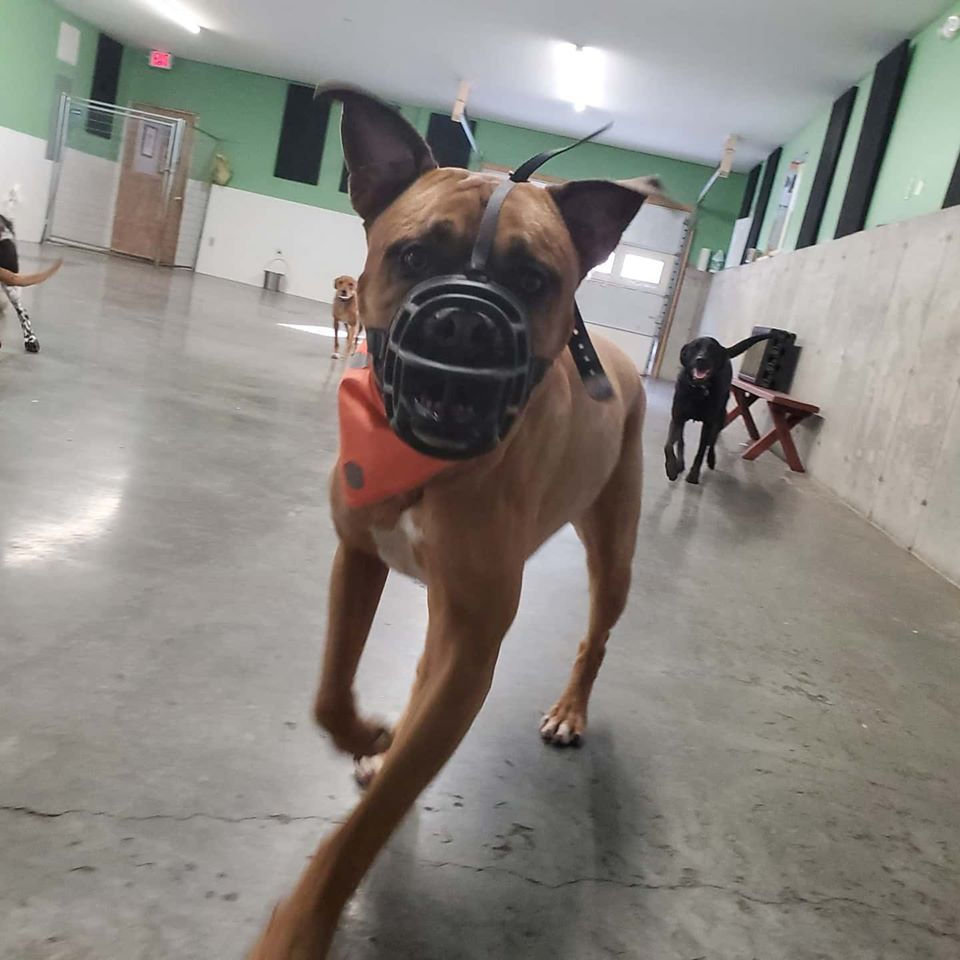Our Mission as Dog Trainers
How our first dog changed our lives forever.
As dog trainers , our jobs can be tricky. You see, the entire reason that we do what we do is because we once had a dog that we didn’t understand. His name was Jibber, and while we loved him completely, he had issues that perplexed us, that frustrated us, and that progressed as time went on. We became aware of his aggressive tendencies and sought the help of a trainer. We thought we were doing the right thing by getting help from someone who clearly knew more than we did.
We met with this trainer one time for 1 hour. During this time, he explained a few things about Jibber’s body language, about how energy gets transferred down the leash to the dog, and about what kinds of treats and food we should be feeding him. He said Jibber was not aggressive and we should not be worried about it. While I was relieved, I was also confused. If this isn’t aggression than what is? Then, a few minutes later while we were outside finishing up the session, another client was bringing her dog in on a leash to get his nails trimmed. Jibber, staying true to form, growled and lunged straight towards that dog. Luckily Jeff had him on leash. Jibber didn’t calm himself until after the other dog was in the building. I was expecting the trainer to reevaluate Jibber's temperament after that, but instead he said that Jeff was holding the leash too tight, and that the other woman had no control over her dog. He shrugged and ended the session.
We left there more confused than ever, with no options for any kind of follow up training. Left to my own devices, I started diving into books and bought a clicker. I tried a harness and all kinds of leashes, and worked on my confidence while walking with him. Nothing seemed to work. He would still pull ahead of me no matter how many times I kept turning and walking the other way. He would still bark and lunge at passing people and dogs and try to chase cars on our walks. He would still jump up on our guests and start fights with our friends dogs. And he was still sweet as could be when it was just the three of us.
We had no idea how all of these issues were symptoms of something bigger. We had no idea that they were all connected, because the one person we sought help from either told us what we wanted to hear (rather than what we needed to hear), or perhaps didn’t know much about behavior or how to change it. We just don’t know what we don’t know.
Unfortunately, Jibber’s life came to an abrupt end one day when he chased a car who never saw him coming.
Looking back, we should have been told that we were allowing Jibber to practice impulsiveness, which feeds aggression. We should have been told that it’s never about the incident, but about the lifestyle. We should have been told that dogs need to be taught how to be calm, and that allowing him to play fetch, and tug, and run around chasing squirrels were feeding the exact state of mind that would lead to his death. An impulsive state of mind killed Jibber. We should have been told that we were viewing our dog through our human, emotional lenses, instead of seeing the bigger picture from a broader perspective. We needed to be told that we would have to step up as dog owners and become Jibber's stewards, and that it would have been work, but that we could do it with the knowledge and resources that were available. That we weren’t alone, that hundreds of other people have walked in our shoes. We should have been told that it was up to us to advocate for our dog, and then been shown the steps to do so.
This experience has helped shape everything about our approach to dog training. When you come to us for training, it usually means you are ready to change the dynamic. It means you’ve realized that what you’ve been doing has not been working in your favor, and it means that you’ve come to understand that there is more to know about dog behavior than what society has conditioned us to believe. You can rest assured that any advice we give you will be for the highest good, for both you and your dog. And it needs to be said that we by no means blame the other trainer. None of us know it all, and when we know better, we do better. What we have taken away from this experience is a drive to be the very best that we can be, both as people and as dog trainers, day in and day out. It is why we continue to immerse ourselves in education and certifications, and question what we know regularly. We will forever be students of dogs, and this is how we honor our Jib-Man and his legacy, and help as many people as possible avoid the heartbreak that we experienced.
Sometimes it’s necessary to say the things that are tough to hear. Sometimes we forget that they are not only family members, but animals who have been domesticated. Sometimes it takes heartbreak to completely shift a way of thinking, and start a movement to help others by changing how they, too, understand their dogs.
We are here for the dogs, to give a voice to the misunderstood and voiceless, and we are also here for you. We will hold your hands, show you the way, and honestly explain your dog’s behavior for what it is, how your choices affect him, and give you the support you need to change the trajectory of your life with your dog. We would have given anything to be told the reality about our situation, and then been offered solutions to help our dog be the best he could be. The truth could have saved his life, even if initially it would have been hard to hear. The alternative has proven to be so much harder.

